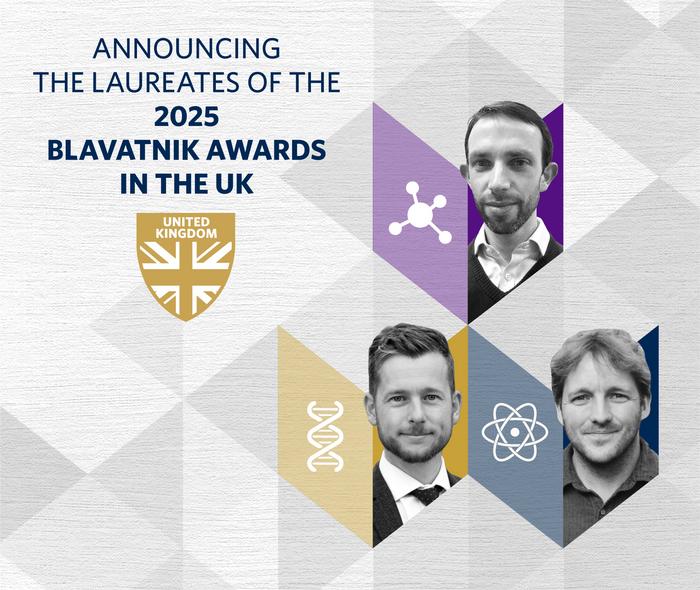LONDON—On March 4, 2025, the Blavatnik Family Foundation and The New York Academy of Sciences celebrated an extraordinary gathering of scientific minds at the prestigious Blavatnik Awards for Young Scientists ceremony in the UK. Aimed at recognizing the exemplary contributions of young scholars under the age of 42, the Blavatnik Awards hold the distinction of being the largest unrestricted prize available for UK scientists. This year, the committee announced the three Laureates who are set to receive £100,000 (approximately $126,000) in unrestricted funds, acknowledging their groundbreaking research in critical areas of science and society.
The selection process for the Laureates involved a rigorous evaluation of nine finalists, who were spotlighted for their remarkable work across varying fields. Each of this year’s chosen Laureates is addressing significant global challenges—ranging from infant mortality to sustainable manufacturing practices and the long-term predictions of climate change. These three individuals have not only excelled in their respective areas but also embody the innovative spirit that the Blavatnik Awards aim to honor.
The evening’s event took place at The Orangery, Kensington Palace, providing a majestic backdrop to a celebration of scientific achievement. The gala emphasized the burgeoning impact of regional universities in fostering significant scientific advancements. The collective research efforts by the Laureates reflect a commitment to pushing the boundaries of knowledge and tackling the pressing challenges we face today.
The 2025 Blavatnik Awards Laureates include Prof. Christopher Stewart from Newcastle University, who was awarded the Life Sciences Laureate title for his pioneering work in microbiome-based therapies targeting pre-natal infant mortality. His research has yielded a profound impact on clinical practices, highlighting how human breast milk can shape a beneficial gut microbiome in premature infants—a critical factor in improving their health outcomes. Such strides in medical research gravitate towards creating more effective interventions and therapies that can be implemented in clinical settings, thus saving lives.
Recognized as the Chemical Sciences Laureate, Prof. Liam Ball from the University of Nottingham has made strides in transforming industrial chemical practices. His innovative methods have ushered in a new era of green manufacturing, making the production of pharmaceuticals and agrochemicals safer and more efficient. Utilizing bismuth—a non-toxic element—Ball’s work has led to a reduction in environmental impact during the synthesis of various chemical compounds, including a streamlined process for the anticancer drug golvatinib. His commitment to sustainable chemical processes not only advances the fields of medicine and agriculture but also contributes significantly to environmental conservation efforts.
Prof. Benjamin Mills, a biogeochemist from the University of Leeds, has been awarded the Physical Sciences & Engineering Laureate title. His groundbreaking research in Earth Evolution Modelling allows for simulations of Earth’s climate and surface processes over extensive geological timescales, providing insight into both terrestrial and extraterrestrial climate systems. Mills’ methodologies hold the potential to enhance our understanding of climate change, impacting how we predict atmospheric changes on not only our planet but also on exoplanets. This research opens the door to deeper explorations of habitability and climatic conditions on other planets, thus expanding our search for life beyond Earth.
During the ceremony, remarks from figures such as Sir Leonard Blavatnik, founder of the Blavatnik Family Foundation, underscored the significance of providing financial support and public recognition to early-career scientists. This encouragement can embolden them to take groundbreaking risks in their research, ultimately addressing some of the most urgent scientific challenges facing humanity. Such initiatives demonstrate a commitment to fostering innovation and discovery that are essential for the progression of scientific knowledge.
Professor Shitij Kapur, Vice-Chancellor and President of King’s College London, who hosted the gala, emphasized the responsibility that comes with being pioneers in the field of science. His inspiring words about the impact and importance of their work resonated throughout the event, as each laureate shared insights into their transformative research. This celebration of achievements not only recognized individual accomplishments but also highlighted the collective power of science to foster societal change.
The evening saw the attendance of distinguished guests, including Nobel Laureates and leading figures from academia and industry. Their presence exemplified the importance of collaboration between various sectors in driving innovation and responding to global challenges. The Blavatnik Awards have grown substantially over the years, with a significant number of applications received, showcasing an expanding network of talented young scientists who are contributing to various fields of research.
As the 2025 ceremony came to an end, it was a clear reminder of the remarkable journeys undertaken by these young Laureates. Their significant contributions carry the promise of meaningful advancements in science that can lead to better health outcomes, sustainable practices, and a greater understanding of our world and beyond. The Blavatnik Awards serve as a clarion call to continue supporting the next generation of scientists—wielding unrestricted funds and recognition as instruments to drive scientific breakthroughs that could redefine the future.
The Blavatnik Awards for Young Scientists not only recognize excellence in research but also illustrate the broader impact of young scientists on society. The financial backing given to each Laureate fosters an environment where innovative ideas can flourish even in the face of complex challenges. The vibrancy of the scientific community is evident through these awardees, whose diverse research focuses affect tangible changes in various aspects of human life and the environment.
In a world fraught with urgent scientific dilemmas, the contributions of the Blavatnik Awards Laureates serve as a beacon of hope. Their determination to confront these challenges head-on embodies the essence of innovation, compelling society to invest in scientific inquiry and discovery. The ongoing endeavors of these researchers promise to enrich our understanding of such pressing global issues, ultimately driving impactful solutions.
Subject of Research: Microbiome-based therapies, green manufacturing, climate change predictions.
Article Title: Celebrating the 2025 Blavatnik Awards for Young Scientists: Pioneering Innovations in Science
News Publication Date: March 4, 2025
Web References: N/A
References: N/A
Image Credits: The New York Academy of Sciences / Blavatnik Awards
Keywords
Blavatnik Awards, Young Scientists, Microbiome, Environmental Sustainability, Climate Change, Innovative Research, Health Science, Chemical Sciences, Academia, Scientific Achievement.




